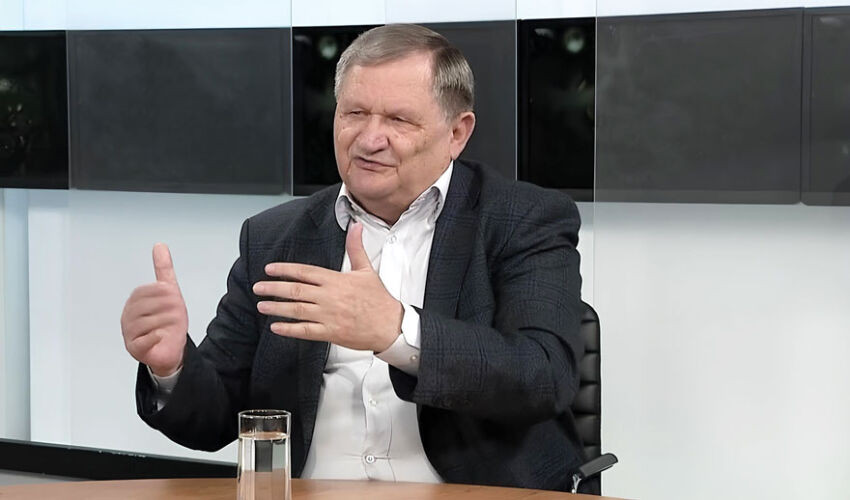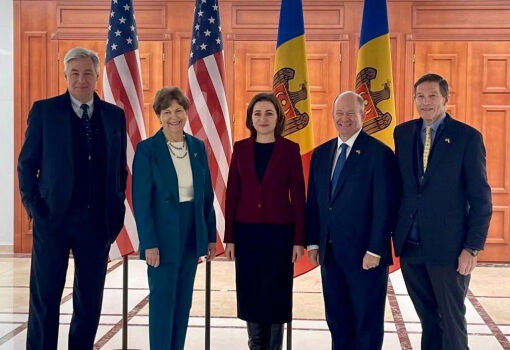
Alexander Muravsky
The amendments to the state budget envisage an increase in spending by 8 billion lei, of which almost 4 billion lei will be spent on “strategic projects and investments” (road construction and repair, business support, etc.). The implementation of these measures will allow, according to Recean, “to ensure an economic growth of more than 5% by 2028”.
This figure looks rather modest. After all, a year ago, then Deputy Prime Minister, Minister of Economic Development and Digitalization Dumitru Alaiba said that in order for Moldova to stop “lagging behind” Europe, it needs an accelerated economic growth of at least 8% annually. But international and regional realities force Moldova, together with the whole world, to constantly change forecasts – and to change them in the direction of deterioration. For example, at the end of last year, the IMF changed its forecast for Moldova’s GDP growth from 4.8% to 3.7% in 2025.
Dorin Recean, in his speech to the MPs, confirmed that now we are no longer talking about growth, but about economic recovery.
“In the conditions of war on the border and energy crisis, economic stagnation in the region, we managed to ensure economic stability, reduced inflation, and now we need to restore our economy,” the prime minister emphasized.
Nevertheless, even economic recovery requires sustainable sources. However, former Deputy Prime Minister and Economy Minister Alexandru Muravski does not see “any positive signals” for Moldova so far.
According to him, the main engine of GDP growth, agriculture, still depends on meteorological conditions, which gives the sector an additional factor of instability.
“According to my initial forecasts, initially the agricultural sector could, as always, pull the Moldovan GDP last year, providing it with 2-3% growth. But the drought in the second half of the year collapsed this forecast. Unfortunately, this is still the case with us: if it rains, there is GDP growth; if it does not rain, there is no growth. This year, meteorologists predict abnormal heat in the summer, and this may again turn out to be detrimental,” Muravsky notes.
According to him, there is little hope for other sectors of the Moldovan economy as well. “The IT sector is not developed enough to ‘pull’ the GDP on itself,” he believes. – There are no investments in the industry, not a single major investor has come there in recent years. On the contrary, some players, such as Fujikura, for example, have left the Moldovan market”.
Alexandru Muravski notes that to the internal problems of Moldova is added external uncertainty – how the tariffs imposed by Donald Trump’s administration will affect the international economy and trade. The expert believes that the approved duties for Moldova in the amount of 31% are unlikely to cause serious direct damage (only to some wine companies associated with the U.S. market) because of the small volume of exports to the U.S. (about $90 million). But the economy of European countries – the main trade partners of Moldova – may suffer, and this will also affect the Republic.
And here it should be taken into account that the state budget deficit, which according to the latest amendments will reach 18 billion lei, is covered mainly by external financing.
In this regard, Muravschi believes that Moldova needs to deal first of all with the formation of an efficient state apparatus, turning the Ministry of Economy into “a real headquarters of economic thought”, which will be able to really explain “why public funds are thrown away on such programs as “European Village” and not on the construction of irrigation systems so necessary for agriculture”.
He also noted that the amendments to the budget are being introduced for the first time exclusively through external injections (European grants and loans). He emphasized that the second part of the 4 billion lei “government package” will be used not for investments, but for compensating the increase in energy tariffs for households and businesses.
According to economist Galina Shelari, such amendments are an even clearer indication of the dependence of the socio-economic situation in Moldova on external factors.
“At the same time, the proposed measures in no way take into account that high energy prices are most likely already the new normal. Europe traditionally imports most of the energy resources it needs. And its eastern neighbor Ukraine is turning from a net exporter to a net importer of energy. Therefore, it is already necessary to think about how the country will be able to ensure stable functioning in the new conditions. Obviously, when preparing the fiscal policy for the next three years, this factor, as well as the difficult situation in the labor market, should be taken into account in the first place,” the expert said.

